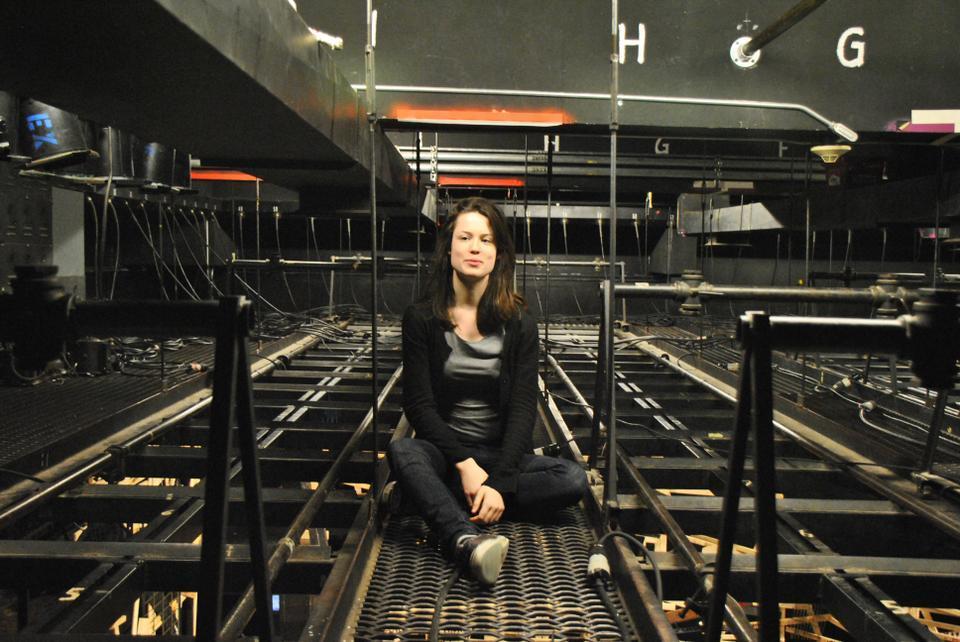
News
Summers Will Not Finish Semester of Teaching as Harvard Investigates Epstein Ties

News
Harvard College Students Report Favoring Divestment from Israel in HUA Survey

News
‘He Should Resign’: Harvard Undergrads Take Hard Line Against Summers Over Epstein Scandal

News
Harvard To Launch New Investigation Into Epstein’s Ties to Summers, Other University Affiliates

News
Harvard Students To Vote on Divestment From Israel in Inaugural HUA Election Survey
Portrait of an Artist: Isabel Q. Carey '12
Isabel Q. Carey ’12, President of the Harvard-Radcliffe Dramatic Club, discusses on-campus theater

Isabel Q. Carey ’12 is the president of the Harvard-Radcliffe Dramatic Club (HRDC) and a junior History of Science concentrator in Leverett House. She has been involved in an on-campus production every semester that she’s been at Harvard. As a member of the HRDC executive board, she also oversees more than 10 shows per semester.
The Harvard Crimson: What is your theater background?
Isabel Carey: I think the first time I did theater was in second grade, when I played a chicken in a production of my after school program. I’ve never done professional theater, but I always did theater wherever I was, both after school and locally. I did every show that my high school put on, and I’ve done a show every semester I’ve been here. I also do a bit of improvisation; I’ve always performed.
THC: What shows are you involved in this semester?
IC: The only show that I’m acting in is “Faustus.” The director is doing an adaptation of the Christopher Marlowe version. I get to play Mephistopheles, who is traditionally a male devil. Now he’s still a devil, just not a male anymore. Also, I’m production advising two or three other shows.
THC: What is your favorite production that you’ve done at Harvard?
IC: If I had to pick one, I would pick “The Pillowman,” which is a very dark comedy that went up in [the Loeb Experimental Theater] last spring. In that, I played a mentally retarded child-killer who was also a child-like figure herself. The role demanded a lot, in terms of physical and vocal transformation.
THC: Did you research to prepare for this role in “The Pillowman?”
IC: I’ve always worked just from the text. I’ve never researched for anything, really. The thing about a role like that is that it doesn’t specify how [the character] is mentally retarded. I didn’t have to portray a certain disease so instead, it was taking the text and situation given and trying to come up with vocal affectation and physicality that made sense with my body for the text.
THC: What is your favorite kind of role to play?
IC: I do like doing musicals, but perhaps that’s only because I was never cast as leads in musicals that I did in high school. “Grease” was the only musical in which I had a big role, and I adored that. I’ve been taking voice lessons with a really wonderful teacher for the last few years, so I’ve gotten a lot better than I was in high school, which is good for everyone involved.
THC: What do you love most about acting?
IC: I think my favorite thing about acting is being able to explore different people, which inevitably brings out sides of yourself, and really lets you explore the human psyche and how we interact with each other. When you’re acting, you can’t make yourself a different person by planning out every single second, that won’t be a real performance. It’s about finding a skeleton of a voice and a physical presence that you can bring life to in the moment onstage. In terms of production, I love the collaboration of theater. Theater can’t exist in isolation; it is the product of so many people coming together and contributing to these really extensive works.
THC: Do you spend your summers acting, or do you do internships unrelated to the arts?
IC: Last year I went to London and interned at a black box theater called “The Gate” with a summer fellowship from the Harvard-Cambridge Scholarship program. The theater allowed me to significantly contribute to the work they were doing. I got to learn about all aspects of running this small experimental theater company. Because I had all this wonderful grant money, I was able to eat. I felt most deeply grateful for my funding when I realized that with my fellowship money, I was making more than other staff members were making per week. There is truly no money in the arts.
THC: What did you learn in London that you’ve brought back and applied here at Harvard?
IC: I think what stuck with me most was the ability of my co-workers to do so much with so little. There’s not a lot of them, and they are running a very legitimate theater out of a small space above a pub. They have no money, yet they continue to produce incredible work. I took away an appreciation for their efficiency and drive, which I’m trying to apply to the work I do at HRDC.
Want to keep up with breaking news? Subscribe to our email newsletter.
